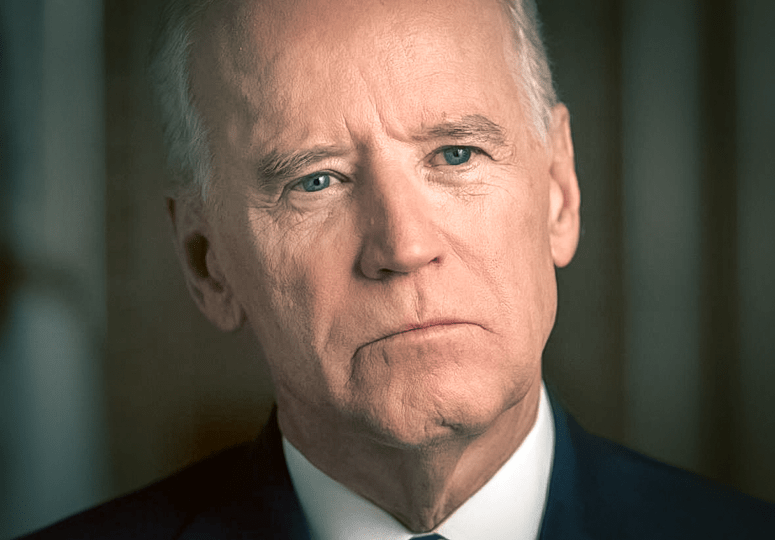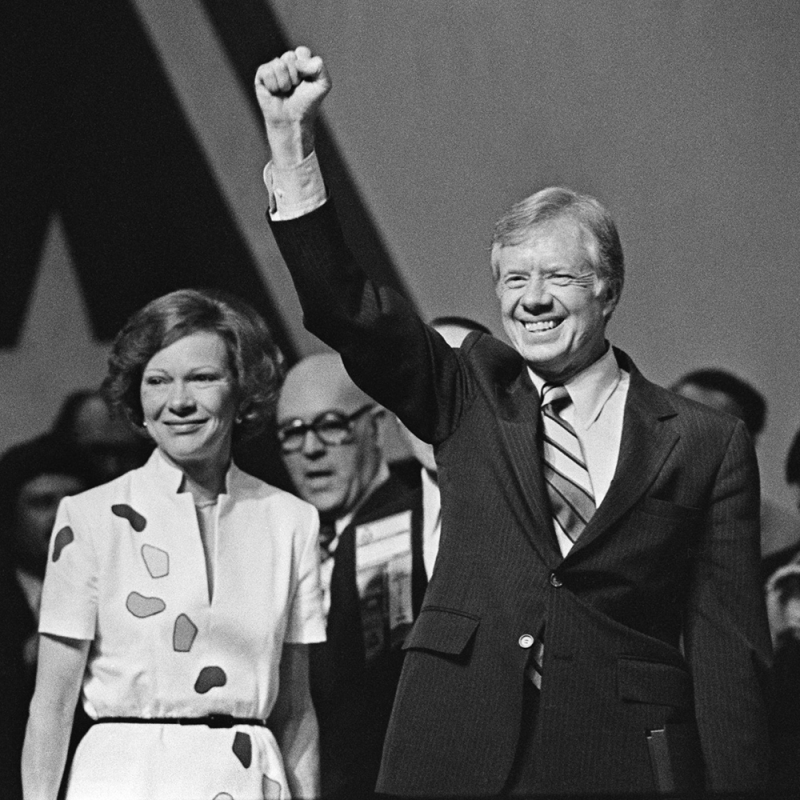

President Jimmy Carter with his wife, First Lady Rosalynn Carter, after addressing the 118th annual National Education Association Convention on July 3, 1980.
JIMMY CARTER
James Earl Carter Jr., 39th President of the United States, was born October 1, 1924, in the small farming town of Plains, Georgia, and grew up in the nearby community of Archery. He was educated in the public school of Plains, attended Georgia Southwestern College and the Georgia Institute of Technology, and received a B.S. degree from the United States Naval Academy in 1946. In the Navy he became a submariner, serving in both the Atlantic and Pacific fleets and rising to the rank of lieutenant. Chosen by Admiral Hyman Rickover for the nuclear submarine program, he was assigned to Schenectady, New York, where he took graduate work at Union College in reactor technology and nuclear physics and served as senior officer of the pre-commissioning crew of the Seawolf, the second nuclear submarine. On July 7, 1946, he married Rosalynn Smith. They had four children. When his father died in 1953, he resigned his naval commission and returned with his family to Georgia. He took over the Carter farms, and he and Rosalynn operated Carter’s Warehouse, a general-purpose seed and farm supply company in Plains. In 1962 he won election to the Georgia Senate. He lost his first gubernatorial campaign in 1966, but won the next election, becoming Georgia’s 76th governor on January 12, 1971. He was the Democratic National Committee campaign chairman for the 1974 congressional and gubernatorial elections. He won his party’s nomination on the first ballot at the 1976 Democratic National Convention, and was elected president on November 2, 1976. He served as president from January 20, 1977 to January 20, 1981. He was awarded the Nobel Peace Prize in 2002 “for his decades of untiring effort to find peaceful solutions to international conflicts, to advance democracy and human rights, and to promote economic and social development.”
"I enjoyed being president. I was proud of my country, proud of the honor that I received, and had confidence in what I did was the right thing."